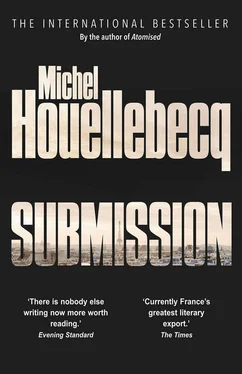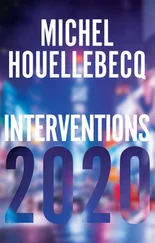He was similarly Nietzschean in his sarcastic, withering hostility towards Christianity, which according to him was based on the decadent, antisocial personality of Jesus. The founder of Christianity enjoyed the company of women, he wrote, and it showed . He quoted Nietzsche’s Anti-Christ : ‘“If Islam despises Christianity, it has a thousandfold right to do so; Islam at least assumes that it is dealing with men …”’ The idea of Christ’s divinity, Rediger went on, led directly to humanism and the ‘rights of man’. This, too, Nietzsche had already said, and in harsher terms, and for the same reasons he would certainly have signed on to the idea that Islam had a mission to rid the world of the pernicious doctrine of the incarnation.
As I got older, I also found myself agreeing more with Nietzsche, as is no doubt inevitable once your plumbing starts to fail. And I found myself more interested in Elohim, the sublime organiser of the constellations, than in his insipid offspring. Jesus had loved men too much, that was the problem; to let himself be crucified for their sake showed, at the very least, a lack of taste , as the old faggot would have put it. And the rest of his actions weren’t any more discerning, like when he absolved the adulterous woman, for example, with arguments such as ‘let him who is without sin’, etc. All you’d have had to do was get hold of a seven-year-old child — he’d have cast the first stone, the little fucker.
Rediger was a good writer. He was clear and concise, and occasionally humorous, as for example when he derided a colleague — no doubt a rival Muslim intellectual — who had coined the phrase ‘imams 2.0’ to describe imams who made it their mission to reconvert French youth from Muslim immigrant backgrounds. It was time, Rediger countered, to launch imams 3.0: the ones who’d convert the natives. Rediger was never funny for long; he always followed up with an earnest argument. He reserved his bitterest scorn for his Islamo-leftist colleagues: Islamo-leftism, he wrote, was a desperate attempt by mouldering, putrefying, brain-dead Marxists to hoist themselves out of the dustbin of history by latching on to the coat-tails of Islam. Conceptually, he wrote, they’d stolen everything from the so-called Nietszcheans of the left. Rediger was obsessed with Nietzsche, but I didn’t have much patience for his Nietzschean mode — no doubt I’d read too much Nietzsche myself. I knew and understood Nietzsche too well to find him charming. Bizarrely enough, I found myself more drawn to Rediger’s Guénonian side. René Guénon is boring, if you try to read him straight through, but Rediger offered an accessible version — Guénon lite. I especially liked an article entitled ‘Geometry of the Link’, in the Review of Traditional Studies . There Rediger reconsidered the failure of communism, which was, after all, an early attempt to combat liberal individualism. He argued that Stalin was wrong and Trotsky was right: communism could triumph only if it was global, and the same held true for Islam: either it would become universal, or it would cease to exist. But most of the article was a strange meditation, rather kitschily Spinozan — there were scholia, numbered propositions, etc. — on the theory of graphs. Only religion, the article tried to show, could create a total relationship between individuals. Think of an X — Y graph, Rediger wrote, with individuals (points) linked according to their personal relationships: it is impossible to construct a graph in which each individual is linked to every other. The only solution is to create a higher plane, containing one point called God, to which all of the individuals can be linked — and linked to one another, through this intermediary.
All that stuff made for very good reading; even though geometrically his proof didn’t make any sense, it took my mind off my plumbing. Otherwise my intellectual life was at a standstill: I was making progress on the footnotes, but I still couldn’t get started on the preface. Oddly enough, it was an Internet search on Huysmans that led me to one of Rediger’s most remarkable articles, this one in the European Review . He mentioned Huysmans only in passing, as the author who best exemplified the dead end of Naturalism and materialism; but the whole article was one long appeal to his old comrades, the traditional nativists. It was a passionate plea. He called it tragic that their irrational hostility to Islam should blind them to the obvious: on every question that really mattered, the nativists and the Muslims were in perfect agreement. When it came to rejecting atheism and humanism, or the necessary submission of women, or the return of patriarchy, they were fighting exactly the same fight. And today this fight, to establish a new organic phase of civilisation, could no longer be waged in the name of Christianity. Islam, its sister faith, was newer, simpler and more true (why had Guénon, for example, converted to Islam? he was above all a man of science, and he had chosen Islam on scientific grounds, both for its conceptual economy and to avoid certain marginal, irrational doctrines such as the real presence of Christ in the eucharist), which is why Islam had taken up the torch. Thanks to the simpering seductions and the lewd enticements of the progressives, the Church had lost its ability to oppose moral decadence, to renounce homosexual marriage, abortion rights and women in the workplace. The facts were plain: Europe had reached a point of such putrid decomposition that it could no longer save itself, any more than fifth-century Rome could have done. This wave of new immigrants, with their traditional culture — of natural hierarchies, the submission of women and respect for elders — offered a historic opportunity for the moral and familial rearmament of Europe. These immigrants held out the hope of a new golden age for the old continent. Some were Christian; but there was no denying that the vast majority were Muslim.
He, Rediger, was the first to admit the greatness of medieval Christendom, whose artistic achievements would live forever in human memory; but little by little it had given way, it had been forced to compromise with rationalism, it had renounced its temporal powers, and so had sealed its own doom — and why? In the end, it was a mystery; God had ordained it so.
Not long afterwards I received Rigaud’s Dictionnaire d’argot moderne (Ollendorff, 1881), which I’d ordered weeks before and which helped me clear up certain questions that had been nagging at me. As I had suspected, claquedent was not a coinage original to Huysmans; it was slang for a whorehouse, just as a clapier denoted any place of prostitution. Nearly all of Huysmans’ sexual relations had taken place with prostitutes, and his letters to Arij Prins were exhaustive on the subject of European brothels. As I perused these letters, I suddenly got the feeling that I had to go to Brussels. I wasn’t sure where this feeling came from. Of course, Huysmans had been published in Brussels, but then, nearly every important author of the second half of the nineteenth century had, at one time or another, been forced to engage the services of a Belgian publisher in order to get round the censors, the same way Huysmans did, and when I was writing my dissertation I hadn’t seen any compelling reason to make the trip. I had gone a few years later, but that was mainly because of Baudelaire. What struck me most about Brussels was the filth and sadness of the city, and the ethnic hatred, which was even more palpable than in Paris or London. In Brussels, more than in any other European capital, you felt on the edge of civil war.
Now the Muslim Party of Belgium had just won the national elections. This was generally considered big news for the balance of European politics. Of course, the Muslim parties already occupied government seats in Britain, Holland and Germany, but Belgium was the second country, after France, where the Muslims had won an outright majority. The stinging defeat of the European right had a simple explanation, in Belgium’s case: although the Flemish and Walloon nationalist parties enjoyed overwhelming support in their native regions, they’d never managed to work together, or even to engage in any real dialogue, whereas the Flemish and Walloon Muslim parties, with their shared religion, had no trouble forming a coalition.
Читать дальше







